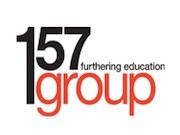157 Group launches IAG policy paper

A membership organisation that represents some of the most influential colleges in England has published its latest policy paper on information advice and guidance (IAG).
Endorsed by the Institute for Career Guidance (ICG), 157 Group has released ‘Information is not enough: the case for professional careers guidance,’ which emphasises the ever important role that FE colleges have to play in career guidance after the demise of Connexions and the major reforms of the career service.
This is described as particularly significant for those who do not have access to strong family networks and personal contacts that can be called on for advice about different occupations.
Although welcoming Government ambitions to strengthen careers education and guidance, and acknowledging that this can play a central role in promoting social mobility, the Group believes that there are also weaknesses in current arrangements and future proposals.
Lynne Sedgmore, executive director of the 157 Group, said: “We welcome the Government’s commitment to improving IAG but we feel that there are some current stumbling blocks that need removing before this can be progressed any further.”
Two downfalls discussed include lack of impartial advice and the loss of professional expertise, resulting from local authority funding cuts and subsequently a loss of qualified staff at a time when they are ‘needed more than ever.’
Marilyn Hawkins, chair of 157 Group and principal of Barnet and Southgate College, believes there are several areas which should be the future of IAG services, and sees them as necessary to ensuring that learners can fulfil their dreams. The five key points identified include:
- Interpreting information so that people can understand how figures apply to them
- Giving impartial information which is independent from any institution or the government
- Careers guidance being a professional role, as opposed to just another job for teachers
- Colleges can be local hubs for guidance services – major community assets that are dedicated to promoting social mobility and economic prosperity through a range of services and partnerships
- Providing face-to-face advice in a world where online information is more and more accessible
Sedgmore stresses the prominence of the last proposal: “Although we are supportive of Next Step, we are still pushing for an entitlement to face-to-face careers guidance for people of all ages, as this is what will make a real difference to achieving effective IAG with positive outcomes for all.”
Along with these points, the paper focuses on integration between FE colleges, Job Centre Plus and the National Careers Service, and also greater co-operation between schools, sixth forms and colleges.
It is thought that such partnerships are needed to guarantee that people make well-informed decisions about their career, stating that it would be a challenge for one institution to meet the services required independently.
In conclusion, 157 Group ask for reconsideration: “We very much hope that the government will think again and, in addition to the welcome moves towards an all-age careers guidance service, will offer all school pupils an entitlement to face-to-face guidance services from an independent, authoritative source.”
Stephanie Manley






Responses